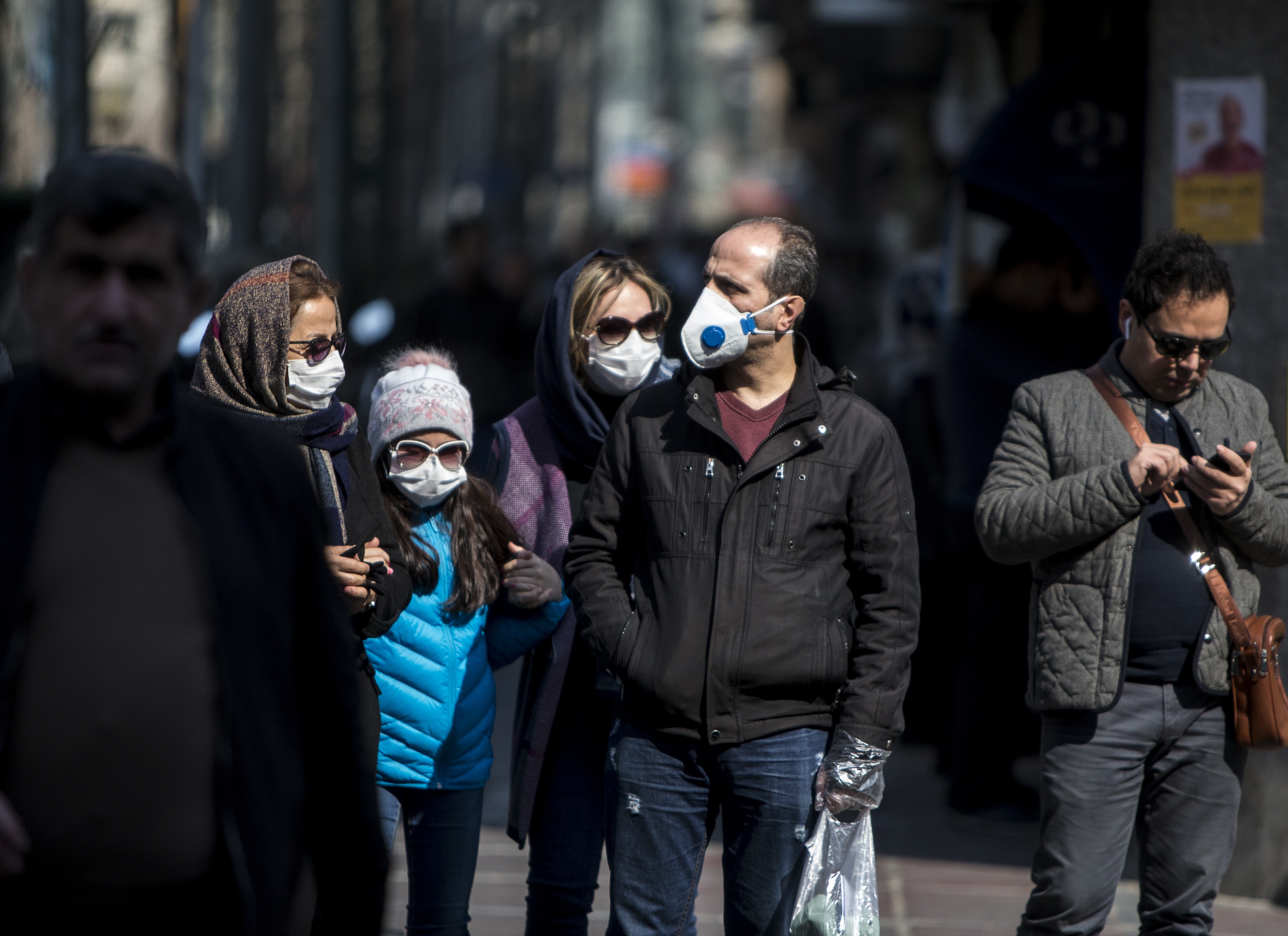Middle East COVID-19 fight: Putting aside disputes for a joint effort
- By Jin Liangxiang
 0 Comment(s)
0 Comment(s) Print
Print E-mail China.org.cn, March 2, 2020
E-mail China.org.cn, March 2, 2020

China's endeavors in the fight against the novel coronavirus (COVID-19) has inspired the world. But the situation in other parts of the world is getting more serious, and the Middle East should be worried. During this special period, countries in the Middle East have to put aside their previous disputes and differences to fight against the epidemic in a coordinated way.
According to reports, Iran has seen a sudden rise in infected cases in the last week. Iran found the first case of the disease on February 19, and the number of the infected has risen to 987 as of March 1. Three Iranian high officials, including Vice President Masoumeh Ebtekar, Deputy Health Minister Iraj Harirchi, and the head of the National Security and Foreign Policy Commission of Iran's parliament Mojtaba Zonnour, have all been infected with the coronavirus.
Iran may become a center that will radiate the disease. Iran is located between South Caucasus to the north and South Asia to the south and between Central Asia to the east and West Asia to the west. It has very intensive political, economic, and religious interactions with the regions mentioned above. The epidemic in Iran can very easily spread to these regions at scale.
In fact, the spread has already taken place in the region. Some neighboring countries, including Oman, Kuwait, Bahrain, and Afghanistan, have already found infections.
The disease is not to fear, but obstacles in the cooperation could result in severe consequences. The long-existing mistrust and tensions in the region could hurdle the joint efforts to fight the disease.
As is known, the tensions between Iran and its Arab Gulf neighbors have been there for a long time. As in many other crises, the epidemic could add stress. It is a real challenge to contain the outbreak as countries involved will complain about not doing enough, such as not controlling the infected, and for doing too much, such as placing travel restrictions to keep their own country safe.
To avoid the worst scenario, countries in the region have to put aside their previous disputes, avoid complaining against each other, and cooperate with each other. This is the most efficient and economical way to contain the spread of the disease. Otherwise, all those living in the region will have to pay the price.
For the purpose of cooperation, the countries will also have to stay alert about any attempts of external powers to politicize the issue. Despite Iran's efforts to contain the outbreak, some government officials of external powers were talking about Iran's concealing the details of the epidemic, which suggests that the COVID-19 issue could become another one to be employed as a political instrument to isolate Iran politically.
At this particular moment of the epidemic, what is needed most is cooperation. Regional countries should be well aware that cooperation and coordination prevail.
It is paramount for the countries in the region to establish mechanisms between their health ministries to regularly exchange information and data about the epidemic. Similar mechanisms should also be established between ministries of interior affairs and transportation affairs to track and monitor cross-border traveling.
Difficulties are looming since mutual mistrust has existed for a long time, and countries might feel some of the information is too sensitive to share. The above-mentioned mechanisms will have to take into consideration the protection of privacy and secrecy of the data.
It seems that WHO can play a role in bridging the gap and promoting the mechanisms. It can also help map out an integrated plan for the fight against the virus in the region.
Iran will have to understand why some of its neighboring countries, like Turkey, UAE, and Saudi Arabia, are taking reasonable measures, such as pushing back and monitoring cross-border travelers. This is routine in containing the spread. But on the other hand, regular exchanges of people should not be disrupted, as this will seriously undermine cooperation and the economy.
All in all, the epidemic should not be regarded as the problem of a specific region but rather as a global problem. Countries in the region will have to urgently find ways to cooperate to fight the common threat.
Jin Liangxiang is Senior Research Fellow with the Center for West Asian and African Studies, Shanghai Institutes for International Studies. For more information please visit:
http://www.china.org.cn/opinion/jinliangxiang.htm
Opinion articles reflect the views of their authors, not necessarily those of China.org.cn.
If you would like to contribute, please contact us at opinion@china.org.cn.






Go to Forum >>0 Comment(s)